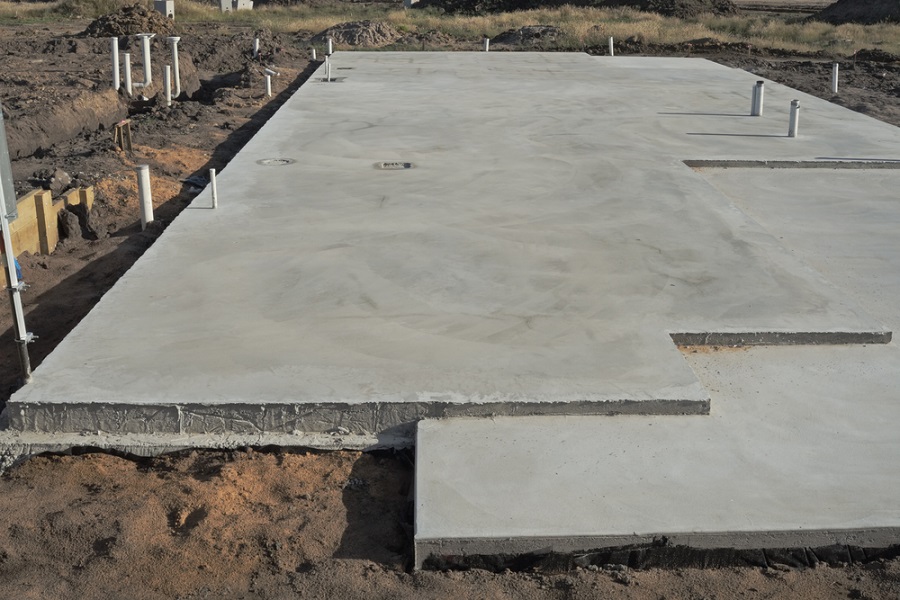In the Greater Fort Worth Area, most houses are built with a slab foundation. In simplest terms, this means that concrete is poured onto the ground, creating a base layer, and then the house is built on top of the concrete slab. Strong, cost effective and durable, they are a popular choice. Concrete slab foundations are often seen in warmer, southern climates because if exposed to too much freezing cold, they would continually have problems with cracking. Also, basements in water climates can attract flooding and water seepage since the water table is closer to the surface.
Atlas Foundation: Experts in Slab Foundation Repair
Of course, there is a lot more engineering and construction that goes into building a slab foundation. First, the land should be graded to allow for drainage and to help keep the completed foundation from sinking. Next, a layer of sand is place on the ground for both drainage and cushioning. Post tension cables or steel rods are used for reinforcement and strength. The poured concrete will be about 4-6 inches in the center of the foundation, but thicker in the perimeter and selected locations to give extra support. Homes built with a slab foundation do not have crawl spaces or basements. There are pros and cons to building a home with a slab foundation.
Slab Foundations Pros and Cons
Pros:
- Drying time for a slab foundation is less than the drying time needed for basement curing. Houses can be built faster.
- Can hold a lot of weight from furniture and other household items.
- Slab foundations are less expensive, especially because basement space does not have to be dug out.
- Less risk of flooding, mold (no damp basements!) and gas leaks.
- Fewer open spaces means less access for pests to get into the home through the foundation.
- Homes are built closer to the ground, so fewer steps are needed to enter the house. This is especially advantageous for residents with a physical disability.
- Lower utility bills since there isn’t extra airspace between the house and ground
Cons:
- Ductwork must be better insulated since it is run above the ground in the attic or living spaces.
- Space is needed for heating and cooling units in the main living square footage. They cannot be stored out of the way in the basement.
- Lack of a crawl space or basement means less storage.
- If wood is directly against the soil line, insects and rodents can get in through the walls.
- With plumbing pipes under the slab foundation, leaks are harder to diagnose, locate and repair.
- If the ground under the foundation is not compacted well, it can cause sinking later on.
- Slab foundations can still crack in warmer weather due to tree roots, soil movement and too much or too little exposure to water.
Let’s look at the last disadvantage of slab foundations more closely. In the Fort Worth area, the soil types can be problematic. When wet, the soil will expand. When dry, the soil will contract. This back and forth movement puts pressure on the slab foundation, causing shifting, movement and settling.

At Atlas Foundation, we teach our clients to take care of their slab foundations to help prevent movement and cracks. We recommend:
- Proper drainage and grading
- Keeping moisture levels consistent
- Regular inspections
- Calling Atlas Foundation at the first signs of suspected slab foundation problems
#1 Fort Worth Foundation Repair Company
Do you have a slab foundation? If you live in the Fort Worth Area, chances are that you do. When problems arise, you can trust Atlas Foundation to provide quality repairs and expert advice. We have been satisfying homeowners in the Greater Fort Worth area for over 60 years. Contact us at 817-478-1181 or visit our website to schedule a no-cost estimate.

